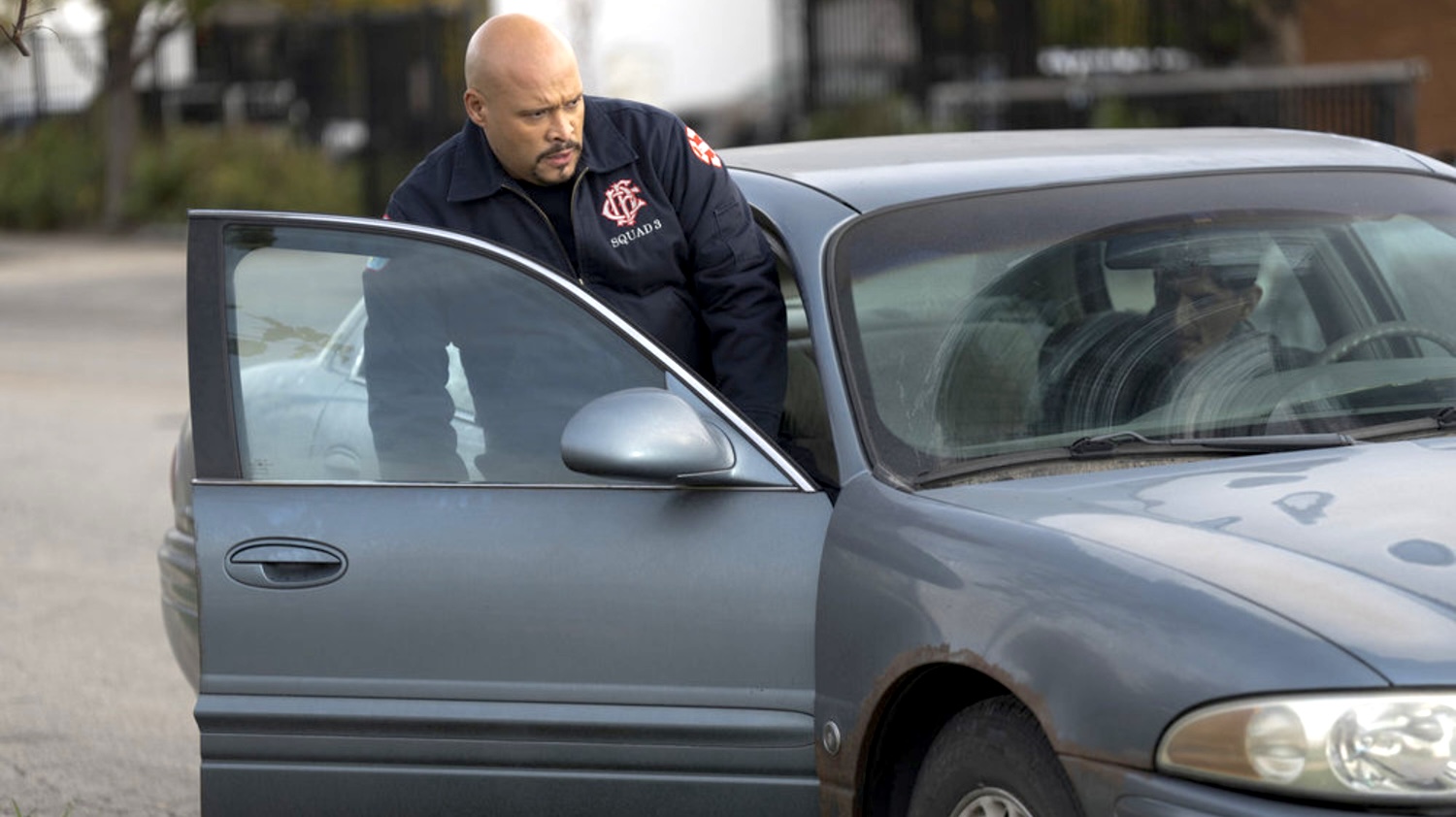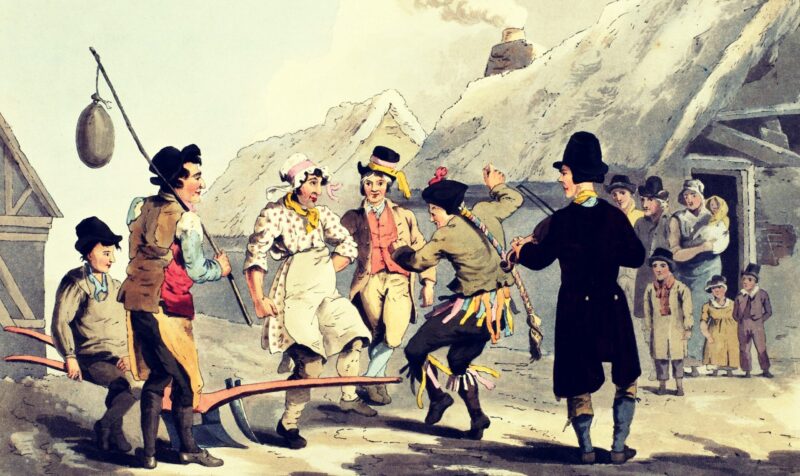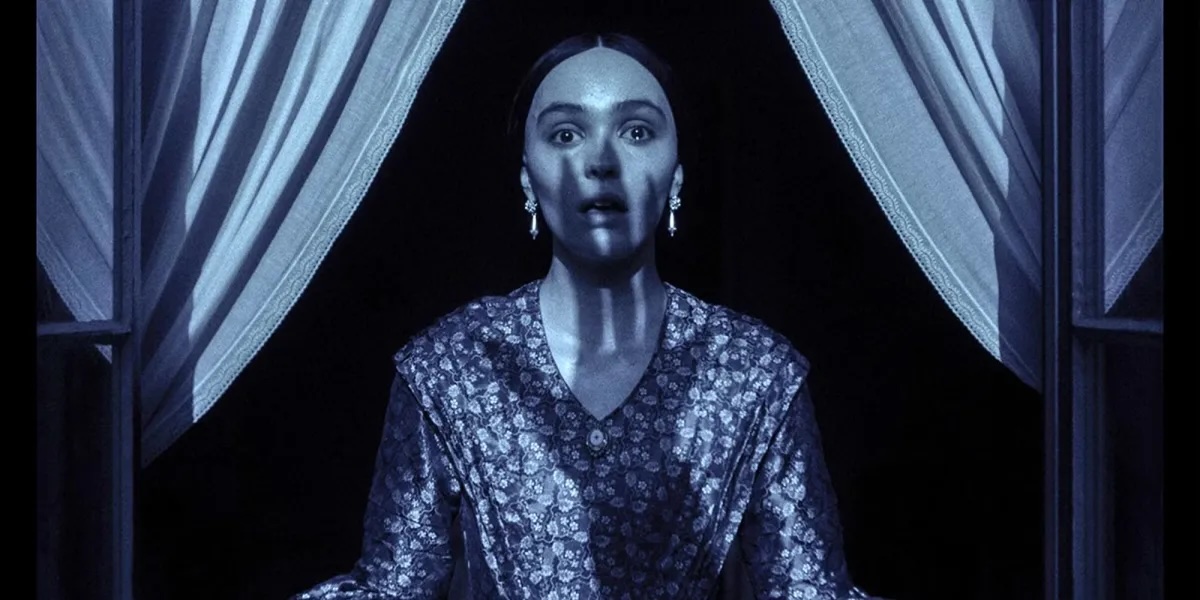Critic’s Rating: 4.35 / 5.0
4.35
While several television series have focused on relationships and sex, not many address the assumptions about sex, feminine appetites, or stereotypes as honestly as Starz’s Three Women does.
The series is based on Lisa Taddeo’s #1 New York Times bestselling book. While adapting a narrative nonfiction book is challenging, the series kept most key elements intact, changing only two major things.
The series follows Gia (Shailene Woodley) as she acts like the real-life Lisa Taddeo and researches and writes her book about relationships and sex in America. Taddeo thought that adding Gia’s character and story made her more relatable, and the other women would likely open up.
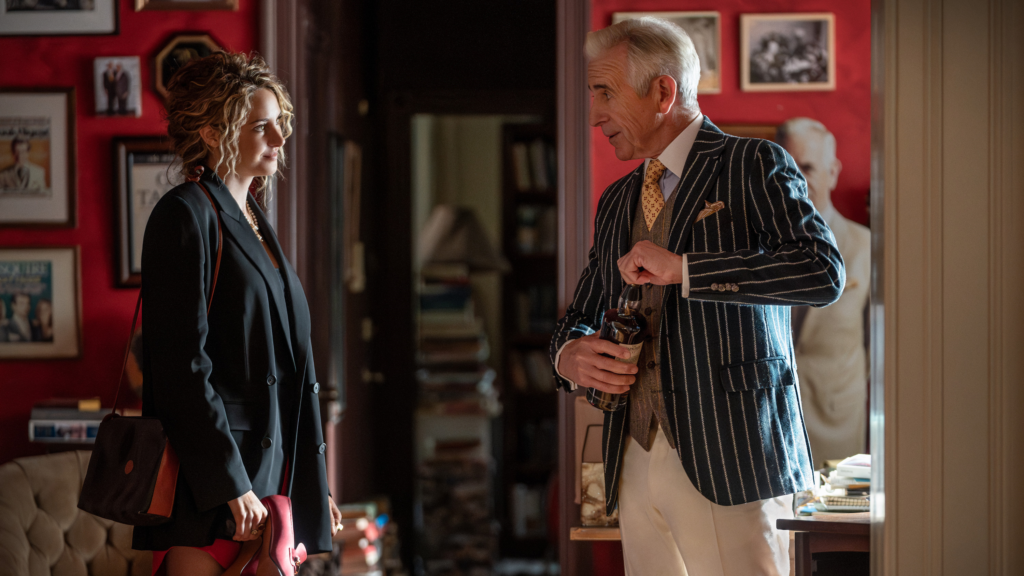
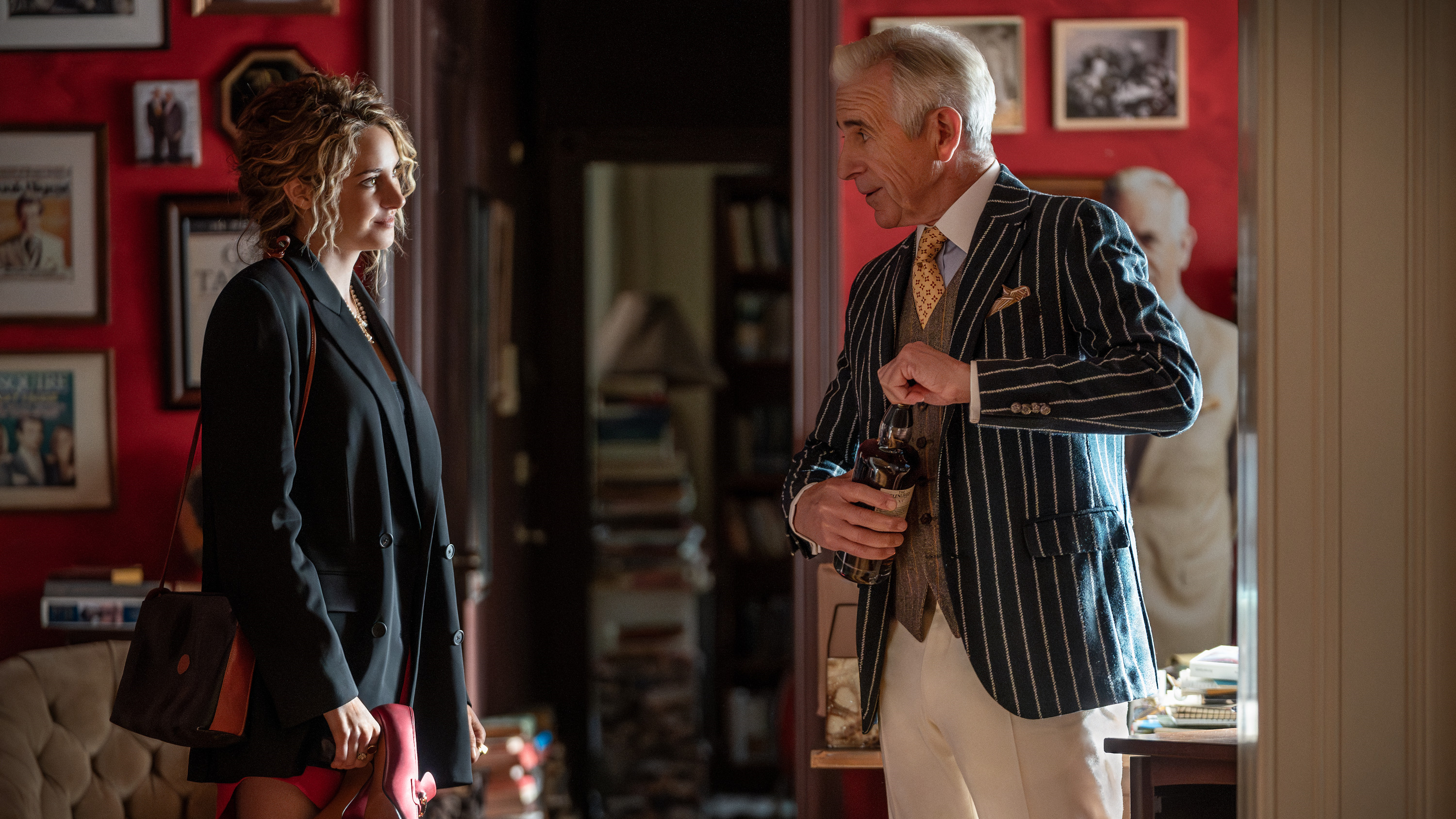
The series premiere introduced us to everyone’s stories, beginning with Gia’s.
Many episodes focus on one of the women’s arcs, allowing viewers to learn how Gia interacted with each other and the details of each woman’s journey.
The series premiere aimed to provide enough tantalizing details about Lina, Sloane, and Maggie to entice viewers to return.
Gia’s book wasn’t going well, so she had to get assistance from her mentor, Gay Talese. He was blunt and amusing, telling her to sleep with married men and take notes on why they cheated.
But Gia didn’t want to write about a man’s point of view. She wanted to showcase women.
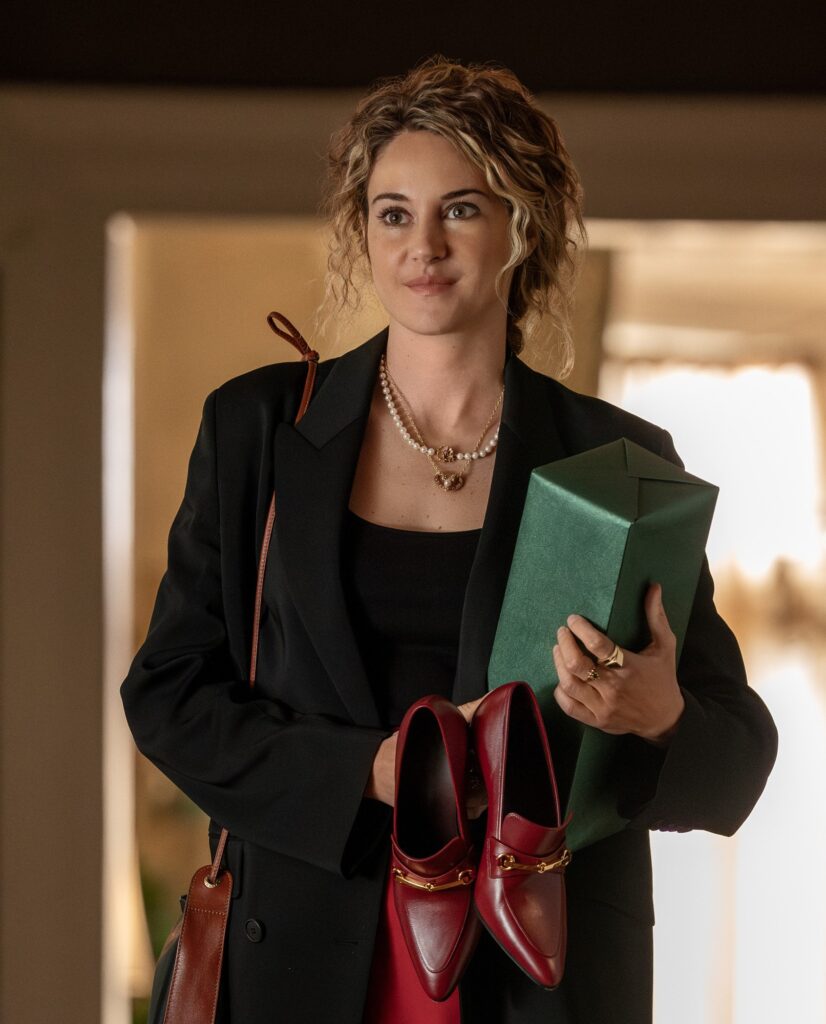
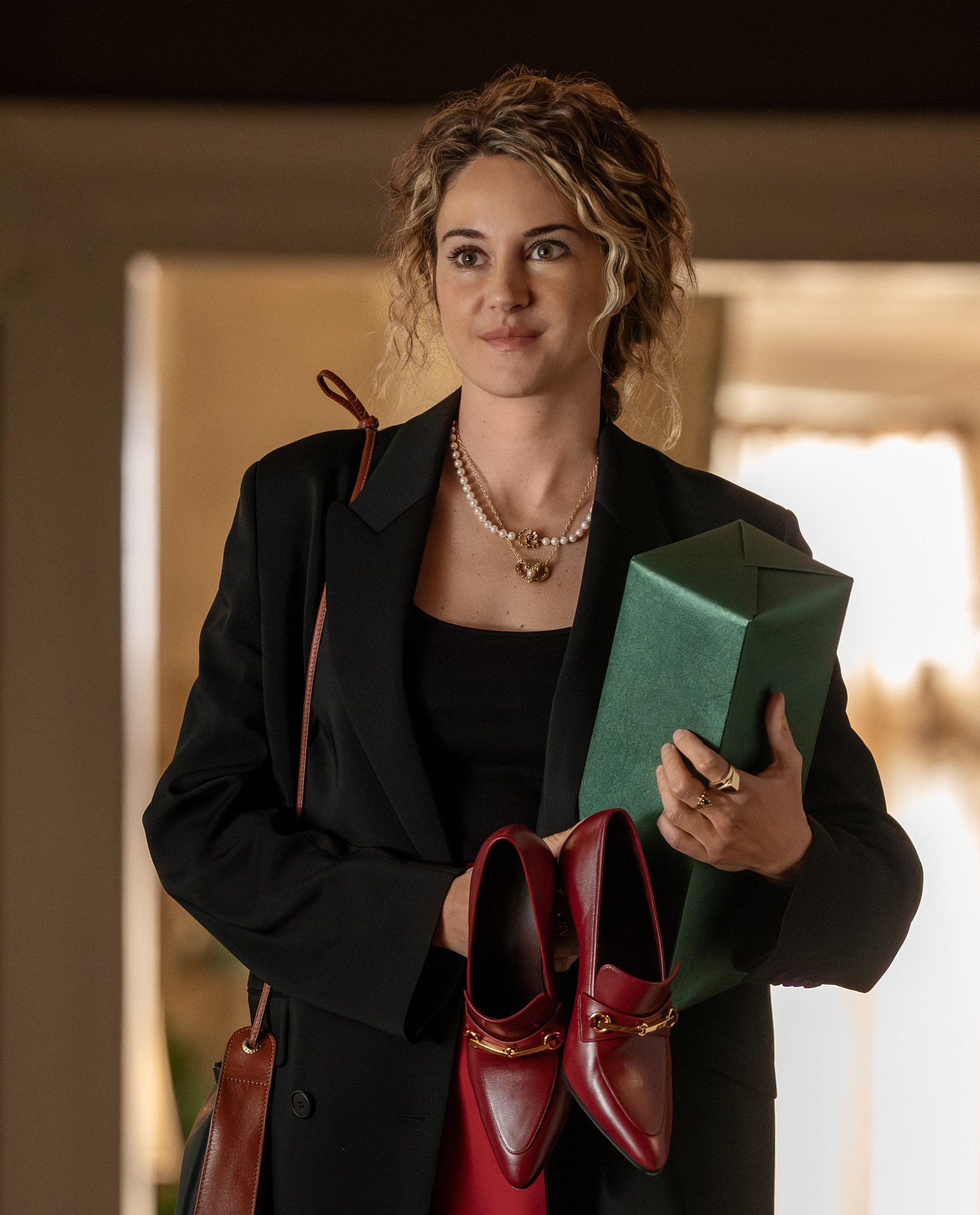
The concept of Three Women was based on what women thought about sex and relationships, and only after she traveled the country did she find that it was imperative to tell their stories.
Gia: Unlike so many others I spoke to over the course of eight years, Lina, Sloane, and Maggie weren’t people who wanted to be watched. They were women who needed to be seen.
Lena’s (Betty Gilpin) arc was the most relatable, and Gilpin gave such layered performances that she pulled at my heartstrings.
She was in a loveless marriage with her husband, Ed, and all she craved was love and affection. It hurt watching Lina approach him, seeing him repeatedly reject him, and watching her visibly flinch.
She only wanted someone to kiss her, and her husband acted like it was annoying.
Since we live in a patriarchal society, Lina was expected to go without physical affection since her husband disliked it if he sacrificed something like his cherished Colts blanket.
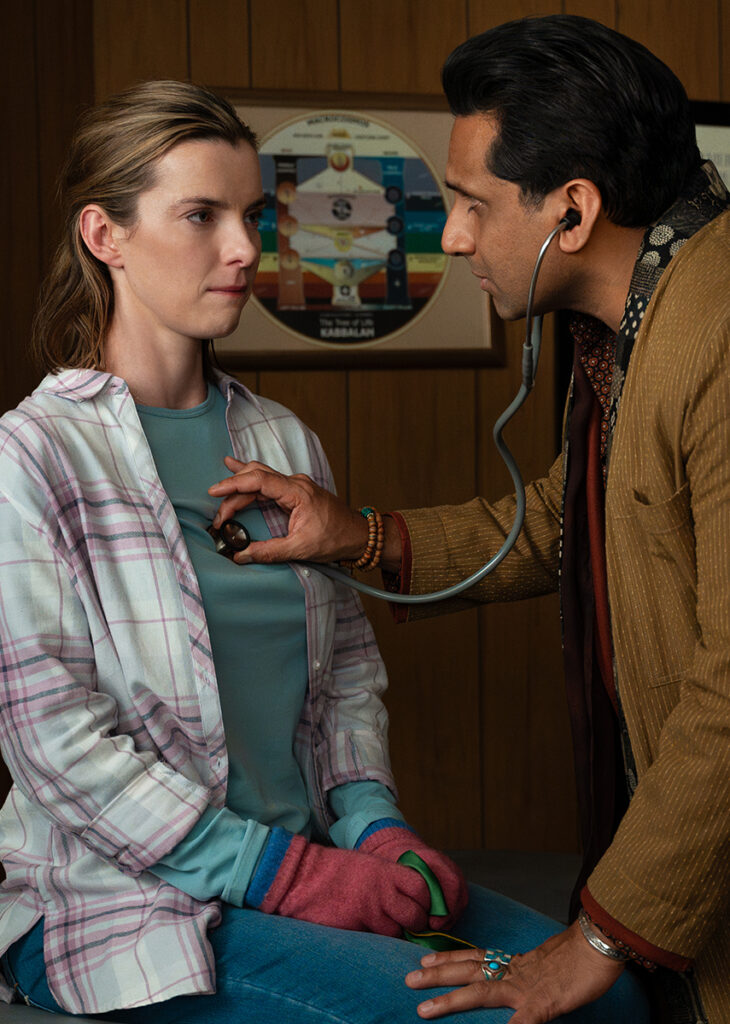
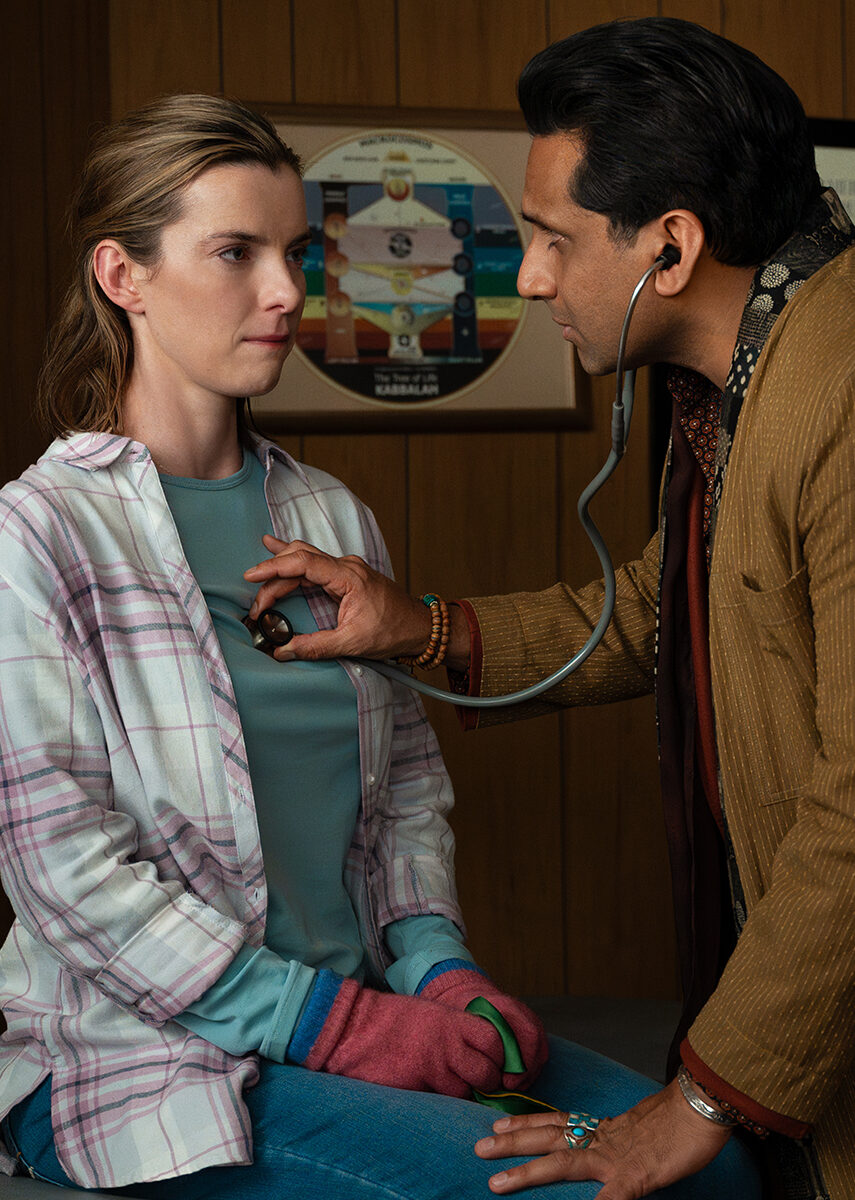
That’s not even on the same wavelength.
Besides the loveless marriage, her husband always inferred that her chronic pain was in her head and that she was crazy.
It was disheartening that the new doctor, Dr. Henry, showed her more compassion and understanding than her husband.
He took the time to examine her and soothe her before diagnosing her with endometriosis and fibromyalgia.
While he suspected her heartache worsened her condition, he never implied she was crazy.
He genuinely wanted to help her feel better about herself, and he seemed to flirt with her to boost her confidence.


Then, the premiere moved to Sloane, who was different than the best-seller. In the book, she was a white Upper East-sider. While in the Starz adaptation, she was an exotic African-American woman who was in command of her life.
Sloane was gorgeous, but she didn’t believe that. She was always working out, and other women despised Sloane because of her beauty and because Sloane liked sex.
There haven’t been many television series about couples swinging since the 2008 series Swingtown. Therefore, it was fascinating to watch how Sloane plays the game.
She and her husband, Richard, seemed happy, and he still desired her, but she craved attention from others, too. Perhaps it was her obsession with perfection and with being seen as perfect.
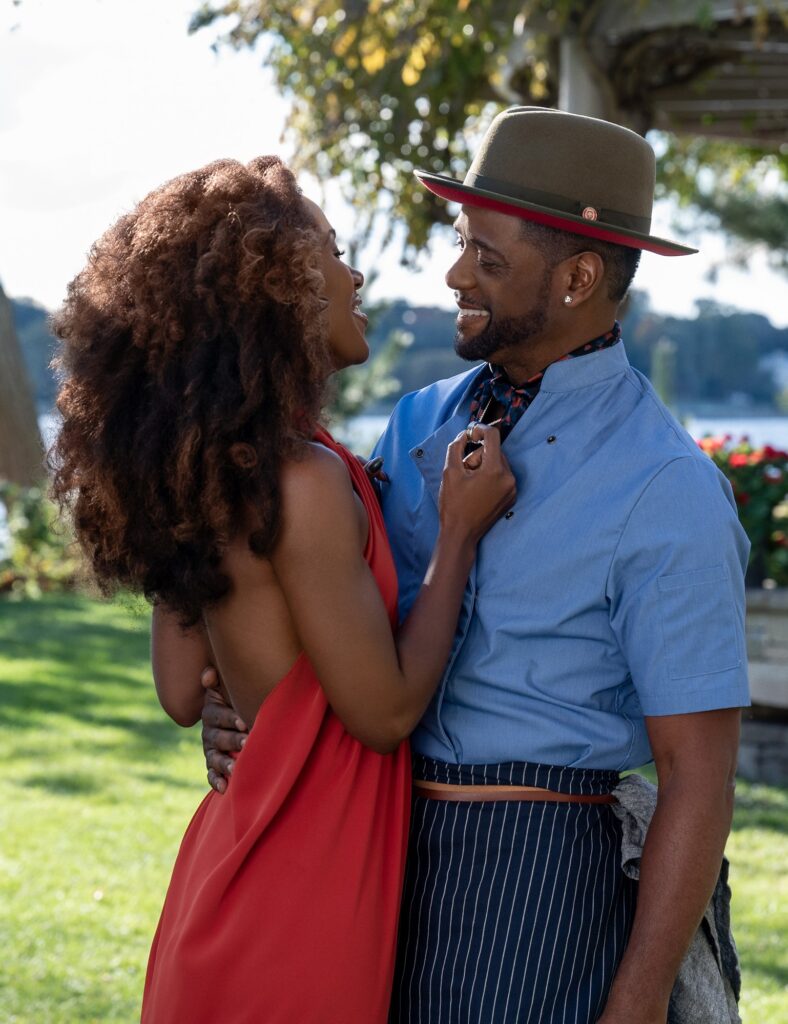
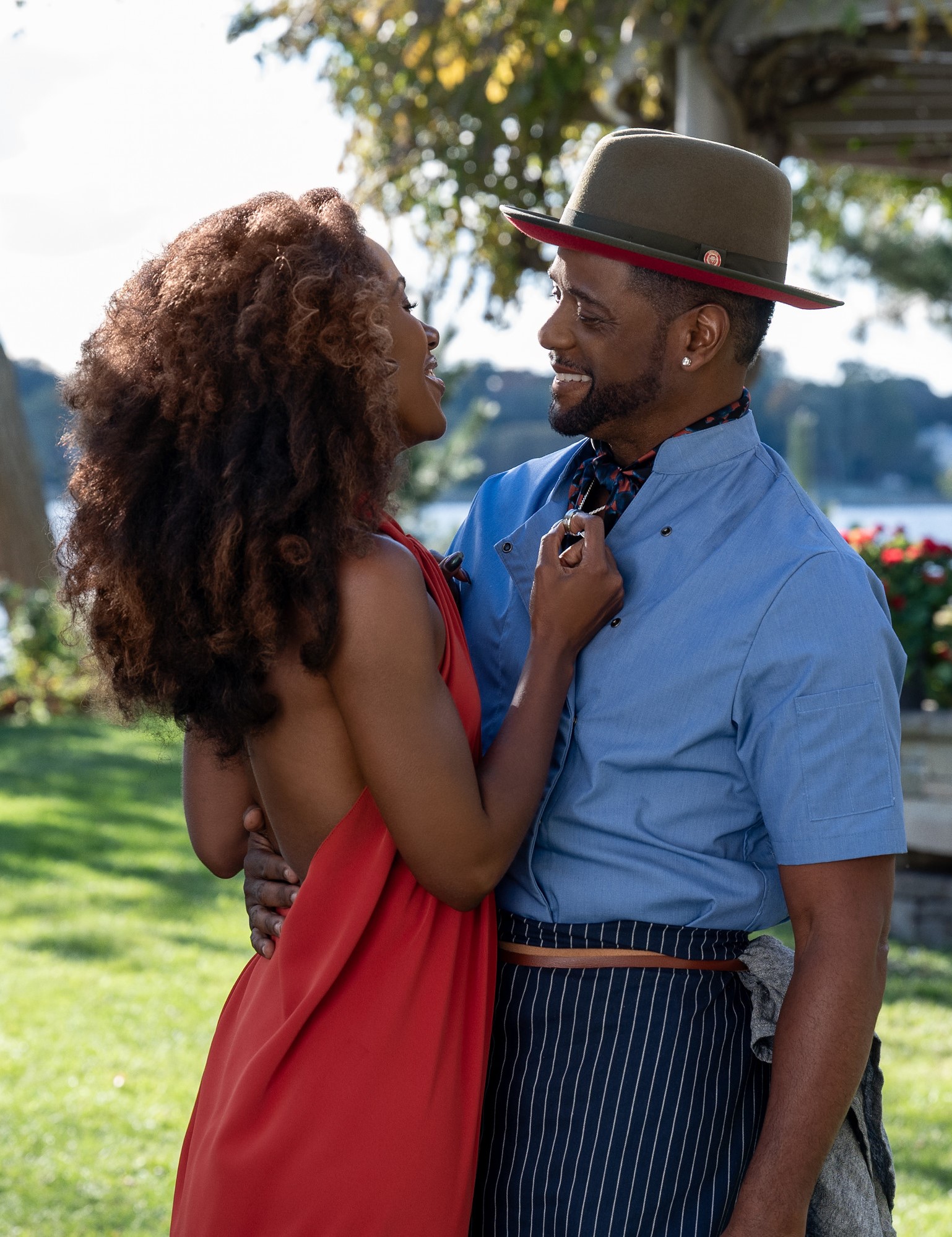
Swinging was all about the game and finding the right partner. Finding the ideal catch was satisfying, and she craved the danger.
There were rules, though.
Sloane wasn’t allowed to find anyone better than Richard. Even though their swinging game benefited her, he still made the rules.
It looked like they were content with their game until Sloane looked for a new oyster supplier and met Will (Blair Redford).
He was rugged and hot, but he wasn’t appropriate to bring home to join their game.
However, her face lit up as she tried one of his oysters, and she hired him on the spot, hoping to see more of him.
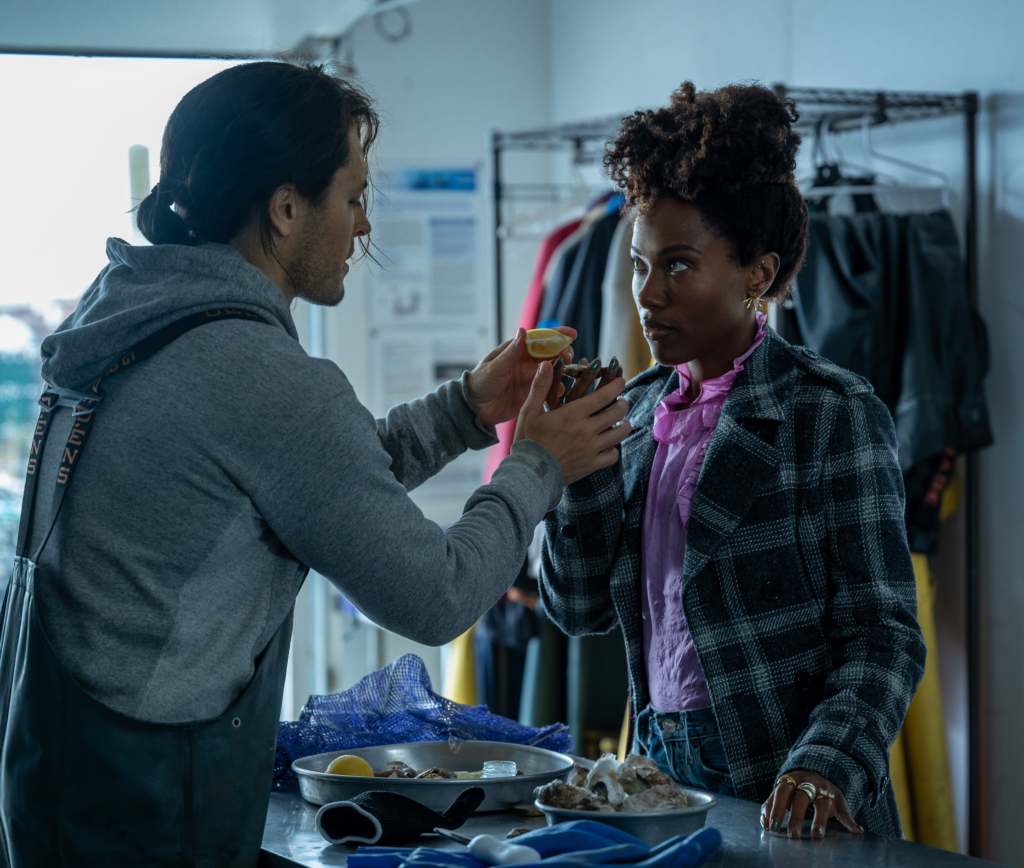
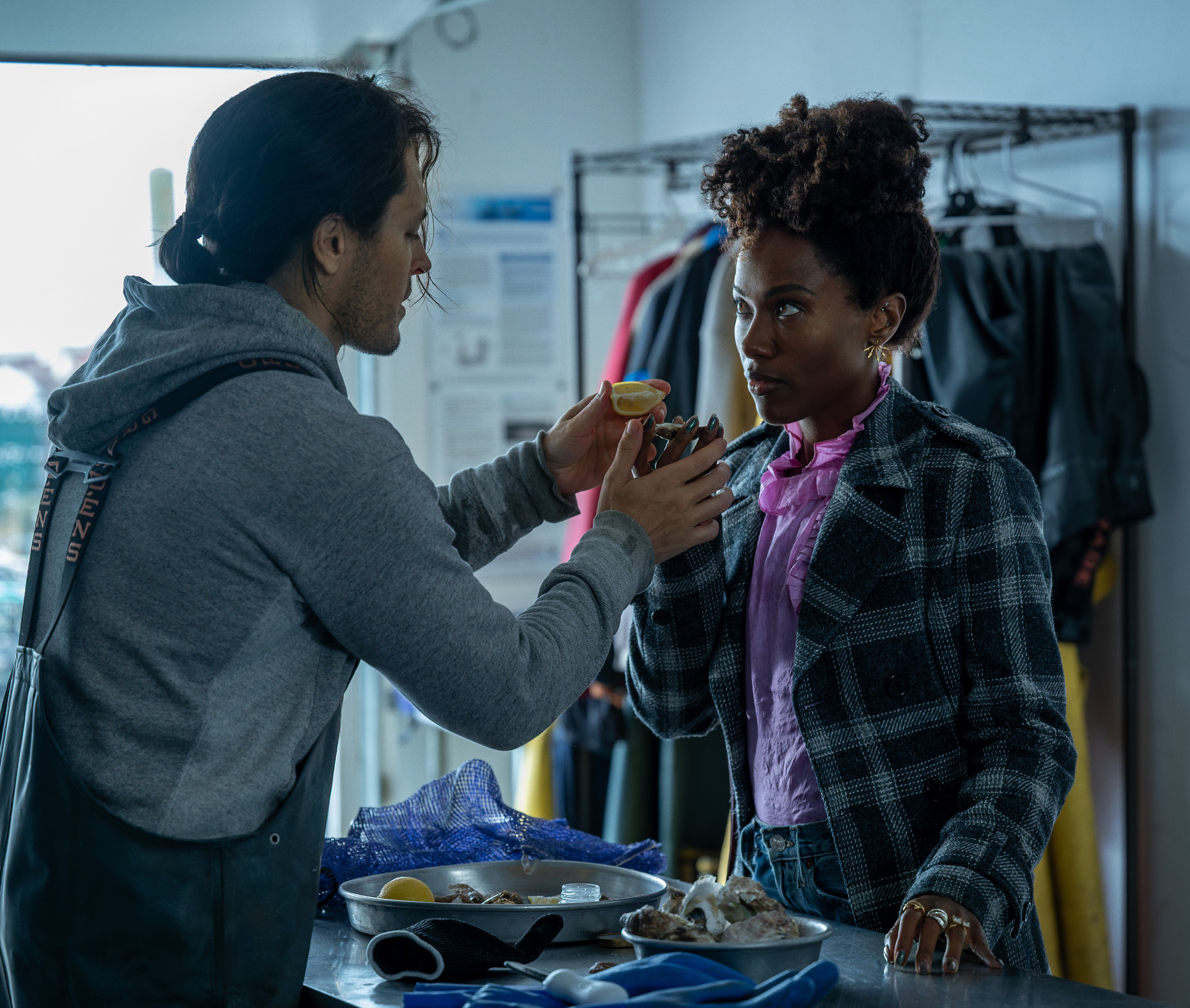
Will quickly became the forbidden fruit since Sloane used to defer to Richard about their swinging dates, and suddenly, she couldn’t stop staring at Will at the next cocktail party.
He challenged Sloane, especially when he reminded her there was more to life than work. For so long, Sloane lived by expectations and images, and she was dying to live for herself. DeWanda Wise and Blair Redford already have sizzling chemistry, and I’m excited to see where this goes.
Maggie’s (Gabrielle Creevy) storyline happens way too often. Although she is now 23 years old, she had an affair with her English teacher as a teenager and hasn’t moved on yet from being groomed.
Neither have people in her hometown in Indiana. People still laughed at her.
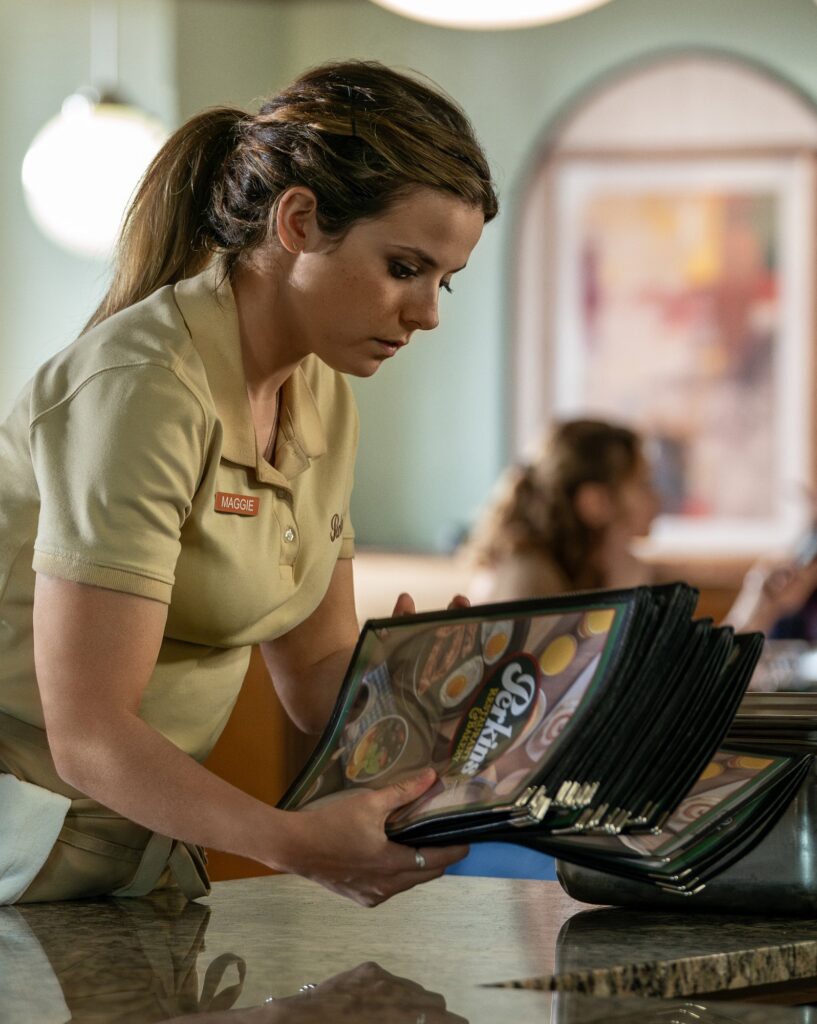
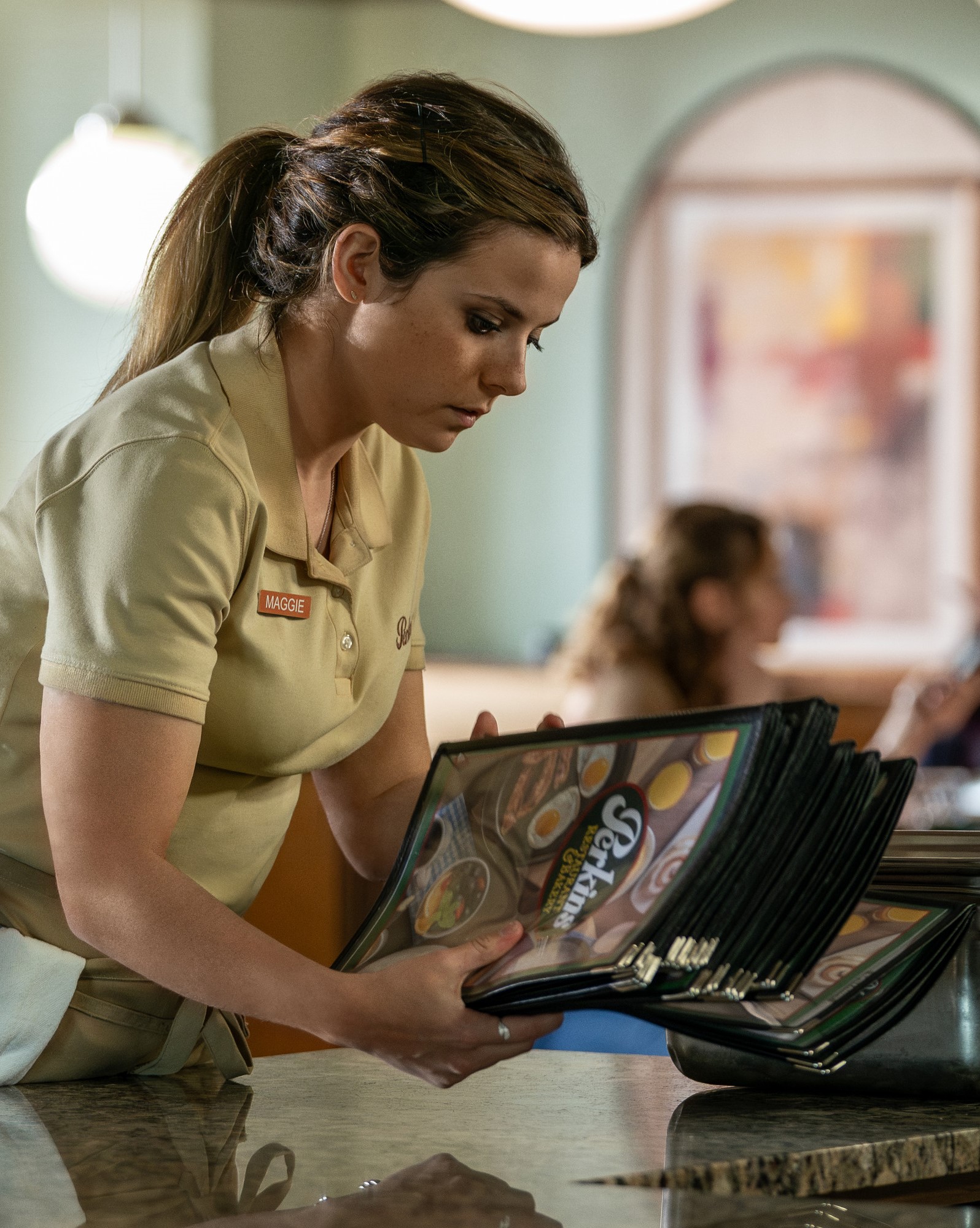
Maggie’s intro played quickly and gave away too much too soon.
After learning Aaron Knodel (Jason Ralph) was named Teacher of the Year, Gia states that there was a trial and no one believed Maggie, even though Maggie had proof they had talked for hours at a time.
The flashbacks showed Mr. Knodel and Maggie together in school. He was married and her teacher; no matter how much he cared for her, it was inappropriate.
Even though it had been years, Maggie struggled to move on with her life, and her friends worried about her.
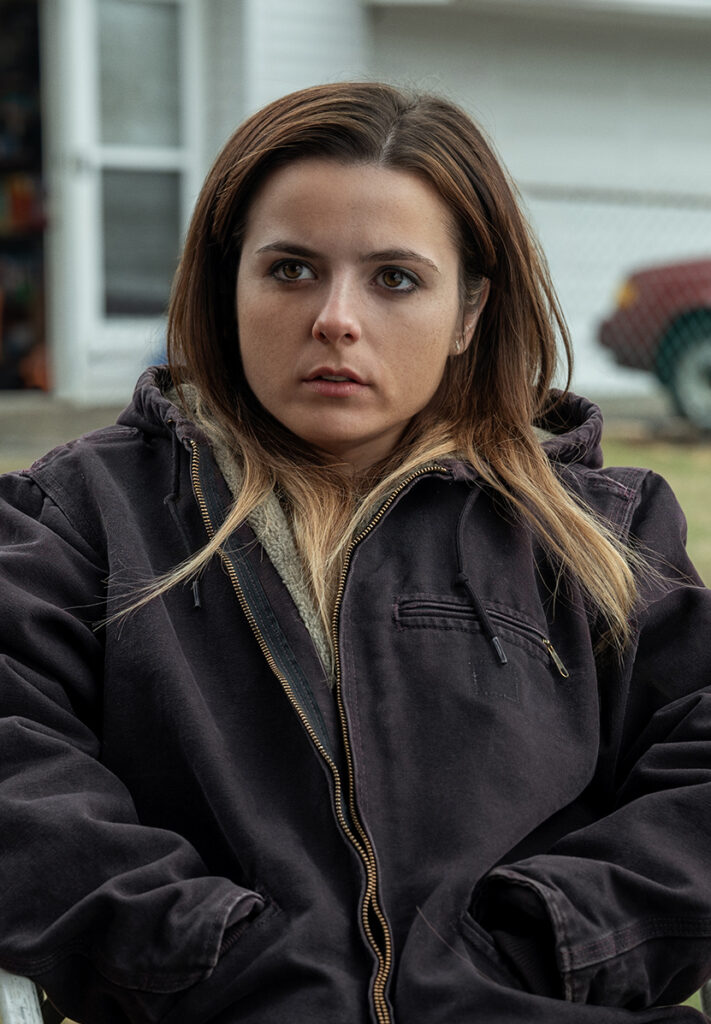
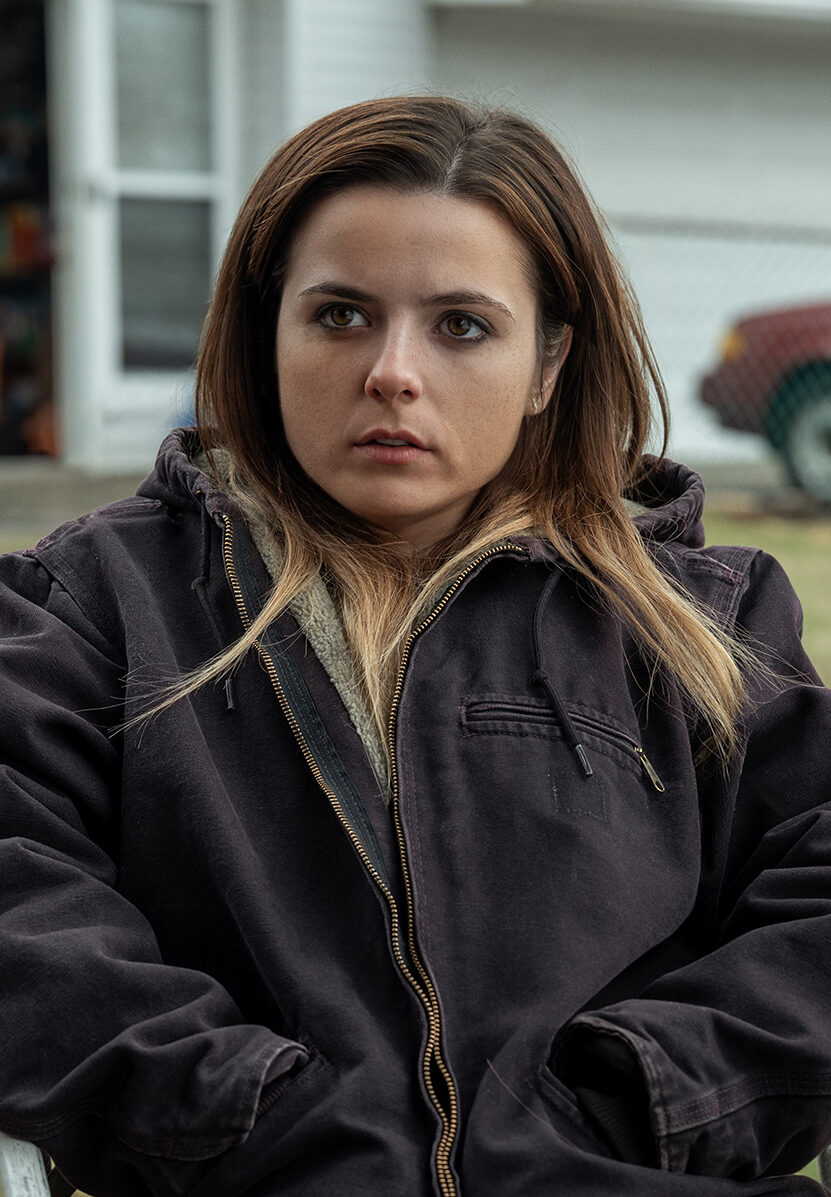
It wasn’t until Maggie thought about Mr. Knodel hurting another young girl that she decided to confront him.
The ending montage was powerful and showed all three women taking back their power. Maggie emailed Mr. Knodel, demanding an explanation.
Lina experienced her first orgasm in her car while fantasizing about her high school boyfriend, and Sloane let go of her body image and finally enjoyed a night swim in her pool.
Though their stories are different, Three Women is about these women taking back their power and wanting someone to love them with all of their flaws.
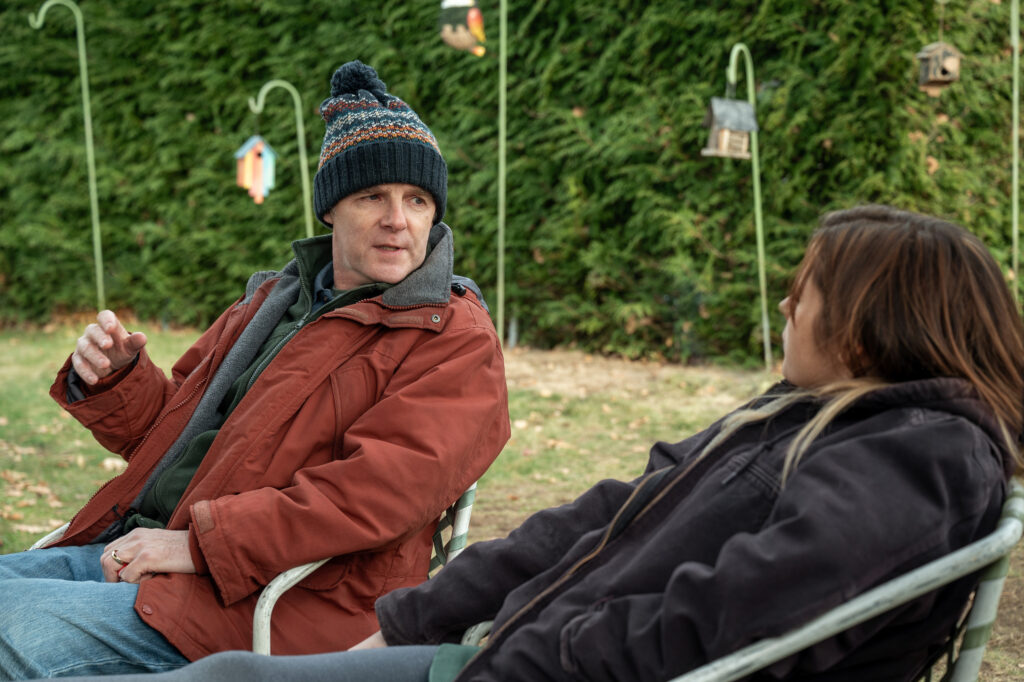
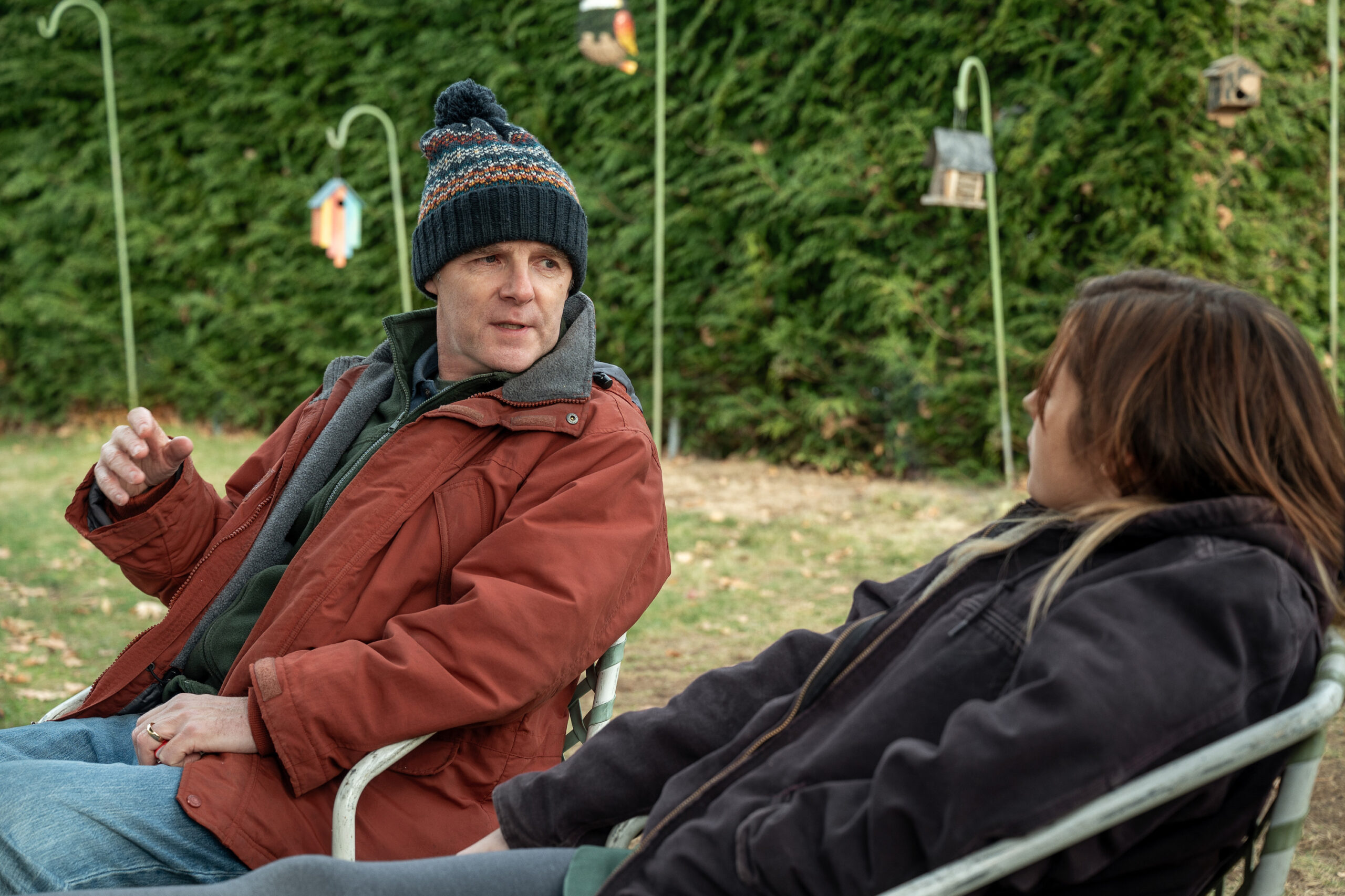
We’ve only scratched the surface on Lina, Sloane, and Maggie’s journeys. We’ll learn more about Gia’s personal story as the series progresses.
Will you be joining us? Whose arc intrigues you the most so far? What do you hope to learn about these women?
This series warrants some good discussion, so please comment below.



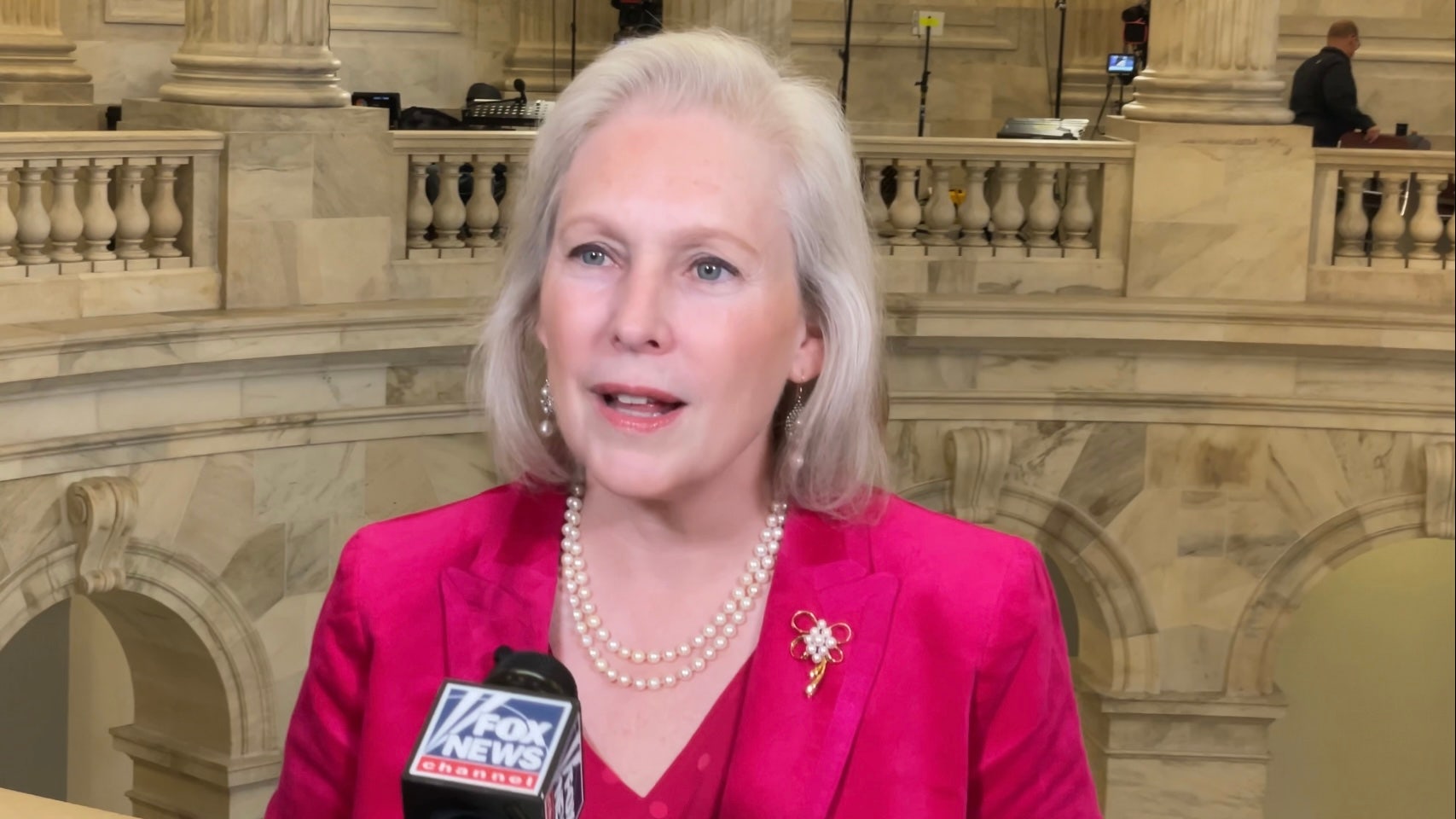


























![Mandy Patinkin as [Spoiler], What’s Next for Oliver and Josh in Season 2 (Exclusive) Mandy Patinkin as [Spoiler], What’s Next for Oliver and Josh in Season 2 (Exclusive)](https://www.tvinsider.com/wp-content/uploads/2025/01/brilliant-minds-113-oliver-mandy-patinkin-1014x570.jpg)

